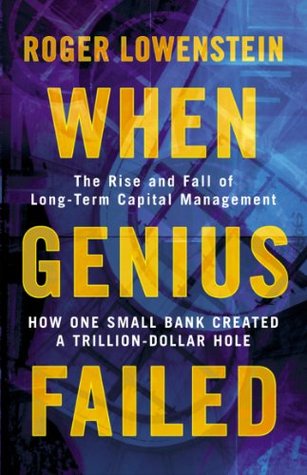More on this book
Community
Kindle Notes & Highlights
Read between
July 23 - December 6, 2023
It was said that only once had he ever suffered a permanent loss, a testament to the fact that he was not a gambler.
Prophesy as much as you like, but always hedge.
life is “a trap for logicians” because it is almost reasonable but not quite; it is usually sensible but occasionally otherwise: It looks just a little more mathematical and regular than it is; its exactitude is obvious, but its inexactitude is hidden; its wildness lies in wait.5
Investors may slavishly follow the trend for no other reason than that they think enough others will do likewise. Such momentum trading has nothing to do with logically appraising securities; it doesn’t fit the ideal of rational investors in efficient markets. But it’s human.
The pursuit of money may have been central to their lives, but as is often the case, it went far beyond any conceivable lifestyle needs. The money was a scorecard, a proof of their superlative trading skills.
“God Almighty does not know the proper price-earning multiple for a common stock.”
“You’re picking up nickels in front of bulldozers,”
This was—so unlike the partners’ credo—rank speculation.
Rival firms began to sell in advance of what they feared would be an avalanche of liquidating by Long-Term.
Brazenly playing both sides of the street, Goldman represented investment banking at its mercenary ugliest.
They had programmed the market for a cold predictability that it had never had; they had forgotten the predatory, acquisitive, and overwhelmingly protective instincts that govern real-life traders. They had forgotten the human factor.
“God knows, we were dealing with Nobel Prize winners!” Ironically, only a very intelligent gang could have put Wall Street in such peril.
Since the Great Depression, the United States has not experienced anything like a real meltdown, though at times markets have seemed to be spinning toward one. But the fear of a financial Armageddon has inspired an imaginative literature that at the extreme has its parallel in natural-disaster plots, mass-computer-failure sagas, and the like. In the abstract, no one can say whether systemic risk presents a real threat—the very phrase is vague and ill defined—but regulators naturally err toward caution.
‘You have no alternative but us,’” recounted Bell, the Long-Term lawyer. “And we said, ‘You have no alternative but us.’” Though it is seldom realized, a creditor is also beholden to his debtor.


